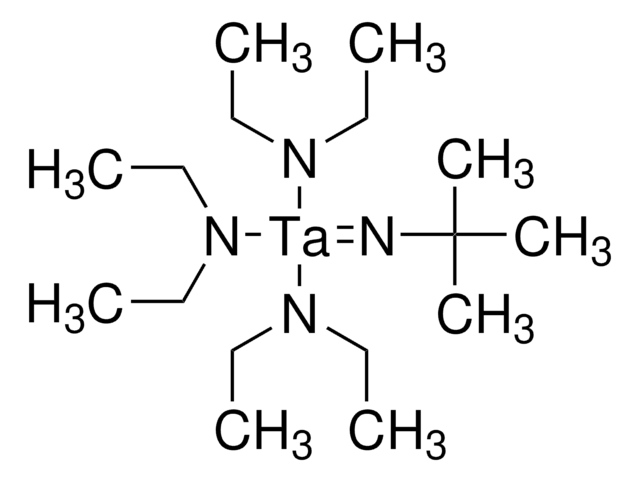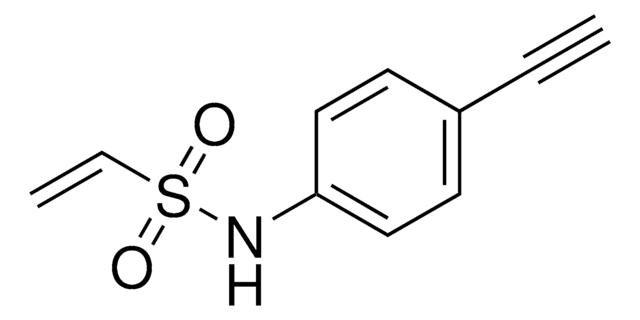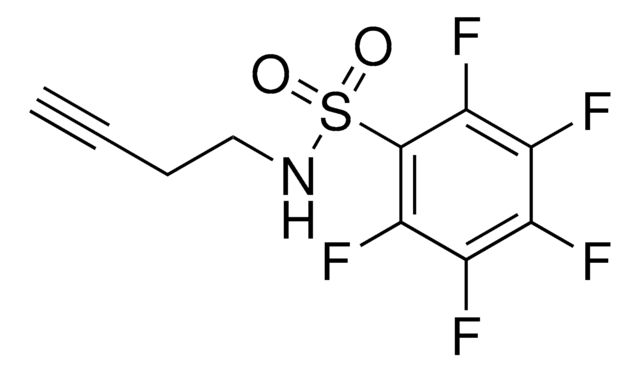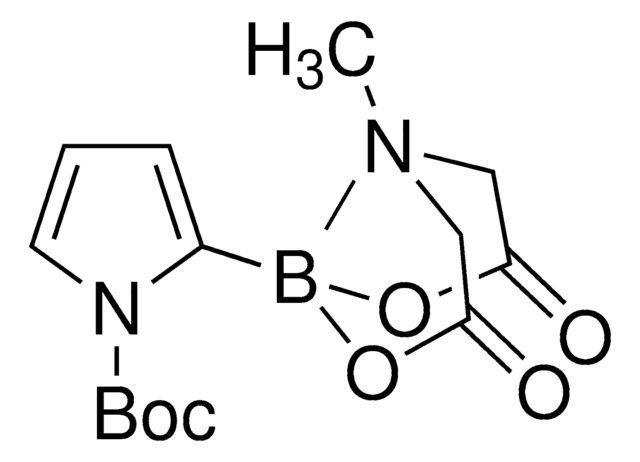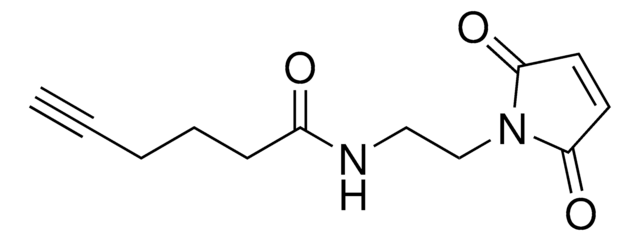930466
HMP-alkyne
≥95%
Synonyme(s) :
4-Hydroxy-3-(hydroxymethyl)-N-(prop-2-yn-1-yl)benzenesulfonamide
About This Item
Produits recommandés
Description
Application: Chemoproteomics
Niveau de qualité
Essai
≥95%
Forme
powder or chunks
Température de stockage
−20°C
Chaîne SMILES
OCC1=C(O)C=CC(S(NCC#C)(=O)=O)=C1
InChI
1S/C10H11NO4S/c1-2-5-11-16(14,15)9-3-4-10(13)8(6-9)7-12/h1,3-4,6,11-13H,5,7H2
Application
Autres remarques
A quantitative thiol reactivity profiling platform to analyze redox and electrophile reactive cysteine proteomes
Ethynylation of Cysteine Residues: From Peptides to Proteins in Vitro and in Living Cells
A Chemoproteomic Platform To Assess Bioactivation Potential of Drugs
Inhibition of Zinc-Dependent Histone Deacetylases with a Chemically Triggered Electrophile
Reversibility of Covalent Electrophile-Protein Adducts and Chemical Toxicity
Produit(s) apparenté(s)
Code de la classe de stockage
10 - Combustible liquids
Classe de danger pour l'eau (WGK)
WGK 3
Point d'éclair (°F)
Not applicable
Point d'éclair (°C)
Not applicable
Faites votre choix parmi les versions les plus récentes :
Certificats d'analyse (COA)
Désolés, nous n'avons pas de COA pour ce produit disponible en ligne pour le moment.
Si vous avez besoin d'assistance, veuillez contacter Service Clients
Déjà en possession de ce produit ?
Retrouvez la documentation relative aux produits que vous avez récemment achetés dans la Bibliothèque de documents.
Notre équipe de scientifiques dispose d'une expérience dans tous les secteurs de la recherche, notamment en sciences de la vie, science des matériaux, synthèse chimique, chromatographie, analyse et dans de nombreux autres domaines..
Contacter notre Service technique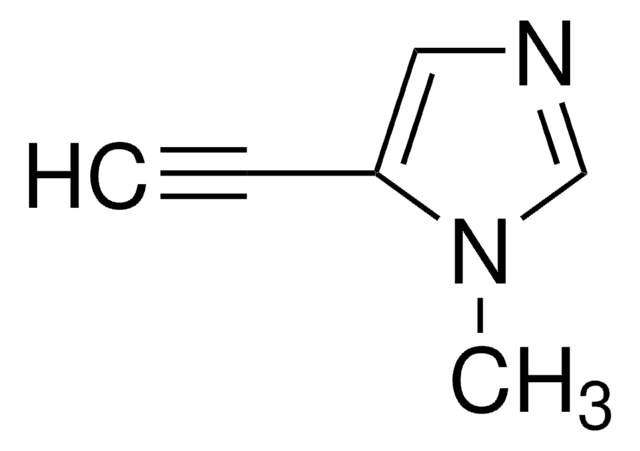

![Poly[(9,9-dioctylfluorenyl-2,7-diyl)-alt-(6,6′-{2,2′-bipyridine})] Mw ≥10,000 Da by GPC](/deepweb/assets/sigmaaldrich/product/structures/229/416/b7bc5f74-105e-4593-b0f8-f605aee79aec/640/b7bc5f74-105e-4593-b0f8-f605aee79aec.png)
